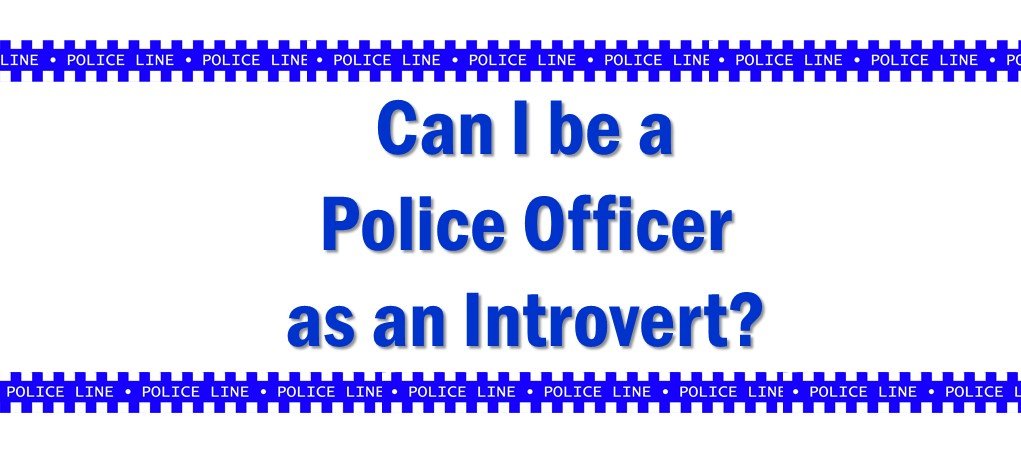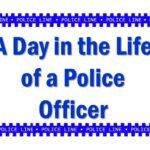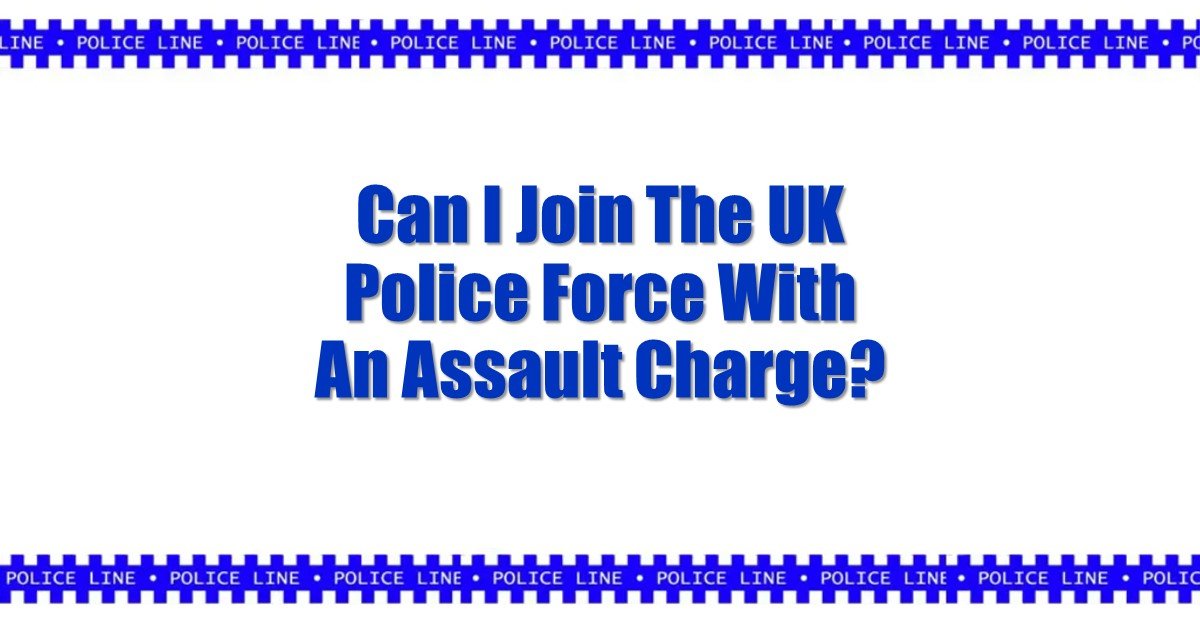There are many misconceptions about what it takes to become a police officer. If you’re an introvert or even just shy, one of the biggest questions you may have is, ‘Can I be a Police Officer as an Introvert?’. Being a Police Officer is a very rewarding career. It’s not for everyone. While many police officers are extroverts, some are introverts. Read on to decide whether you are an introvert and if you are, whether being a police officer is for you.
Can an introvert become a police officer?

The police service is one of the most demanding jobs in the world. Not only do Police Officers have to deal with dangerous situations on a daily basis, but they must also be comfortable with the responsibility of protecting the public.
People often assume that all police officers are extroverts who enjoy speaking in front of crowds and interacting with strangers.
Well, it’s true that most officers have to possess these skills to a certain extent, but there are other qualities that can be just as important for the job.
Introverted people may make very good police officers since they know how to listen patiently and quietly, and how to ask questions without making others feel uncomfortable. Read on to find out whether you are an introvert and whether Policing is for you.
How do I know if I am an introvert?
Characteristics of Introverts
One of the most common personality types is the introvert, someone who is quiet, reserved, and who prefers to spend time alone rather than with others.
Many of us fall somewhere on the introvert-extrovert spectrum, but if you identify with all or most of the characteristics listed below, you may be an introvert. Notice the word “may” in that sentence? It’s because introversion is not a black or white characteristic; rather, it’s a spectrum, like intelligence, and some of the characteristics listed below may describe you, while others may not.
Moreover, you may be an introvert or extrovert, but be able to swap your position (I.e put on a facade) depending on the situation. For example, some introverts will be able to take command positions, whereby they need to be assertive and direct with people.
Key characteristics of an introvert
If you recognise yourself in the majority of the below, you may be an introvert.
- Are reflective
- Are self-aware
- Take time making decisions
- Feel comfortable being alone
- Need quiet to concentrate
- Don’t like group work
- Prefer to write rather than talk
- Feel drained after being with a group of people
- Have a few close friends as opposed to a large group of people you associate with
- Daydream or use their imaginations to work out a problem
If you do not recognise yourself in the above, but thought that you were an introvert, it may be that you are just shy. Shy people can be police officers. By the nature of working in teams, you’re likely to become less shy in yourself.
How do I find out if I am an introvert?
There are a number of different tests you can do to find out whether you are an introvert. One of the simplest and most credible is the Myers-Briggs Test. It will tell you your personality type and the characteristics of this type.
Although personality types are always interesting to do, they only tell up our default personality type, they don’t tell us whether we are able to adapt depending on our situation.
It may be that you are an extrovert and the life and soul of the party. However, you may be capable of mapping our complex business strategy, which would normally be associated with an introvert.
Equally, just because somebody’s instinctive personality type is an introvert, this does not mean that they are incapable of dealing with situations that involve conflict. It just means that after dealing with this, they may feel drained and want some time on their own to reflect on their actions.
So, can I be a police officer if I am an introvert?
Yes, if you are an introvert, you can be a very effective police officer.
What you need to consider are your own limitations. If you do not feel like you would be capable of dealing with situations that involve large numbers of people and potential conflict, you may need to consider whether policing is for you.
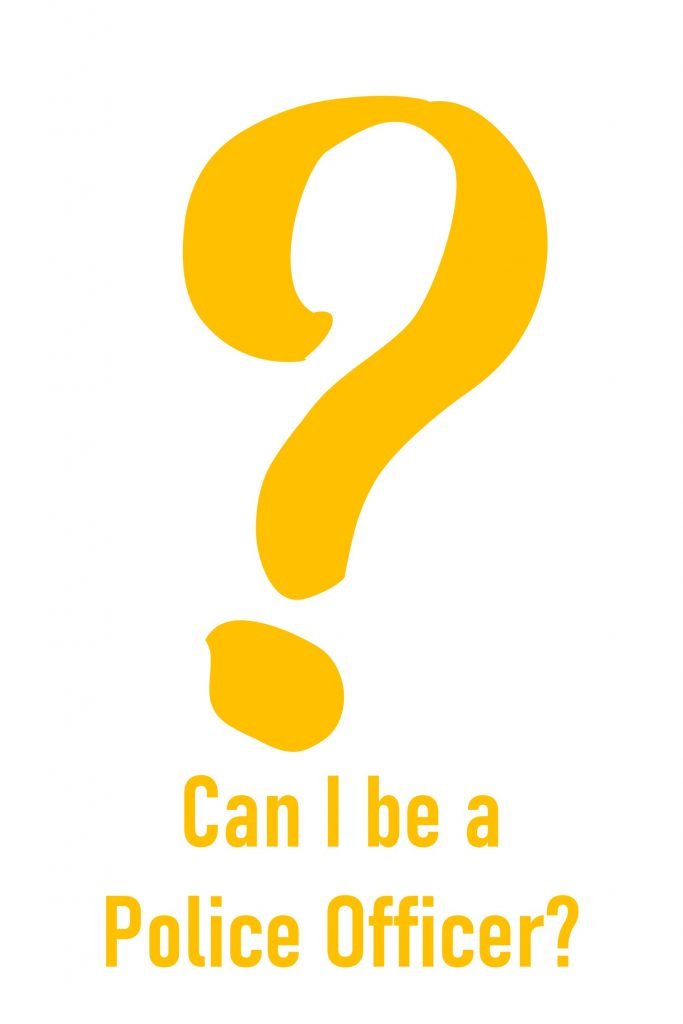
Although we have just been through some of the limitations of introverts, please remember, introverts also have their own skills sets that extroverts don’t necessarily possess. Such as the ability to think through a situation. These are invaluable to policing as the skills that the extroverts have.
Moreover, as a police officer, you will work as part of a wider team, as an introvert, this may not appeal to you, however, it should give you confidence that you are not on your own. If you need support, you have colleagues around you that will always help.
Being an introvert should not be seen as a negative, instead, spin this around and think of all of the different skills that you bring to policing above your extrovert counterparts. Like any good team, the key to success is to have people will different attributes in order to make the whole.
Different roles within the police
If you are an introvert, front-line (dealing with members of the public) policing may not be for you. Most forces have a policy that officers have to complete 2 years’ service as a ‘response’ officer; i.e., responding to 999 incidents.
After this, you are able to apply for other roles within policing. They could be a role in investigation; trying to detect crimes, or neighbourhoods, which would involve dealing with members of the community, but potentially less conflict or you may choose to go into a more specialist role. These roles could involve, counter-terrorism, or joining a safeguarding unit.
Some of these roles will involve more ‘office based’ work, which will potentially see you having to deal with less conflict and using more of the skills that an introvert is comfortable with.
However, you have to remember that you could be called upon at any time to perform ‘front line’ duties.
What roles will suit me within policing if I am an introvert?
Introverts are typically more reflective and reserved than extroverts. They may be more cautious than your average officer, and they may need time to absorb and process information.
As an introvert, you are more likely to be more comfortable in more strategic roles that have less contact with the public.
I am unsure whether I will be suited to Policing as an Introvert
If you are unsure whether your personality will prevent you from being a suitable police officer, why not try before you buy? What do I mean by this? Why not have a go at being a police officer before fully committing to it.
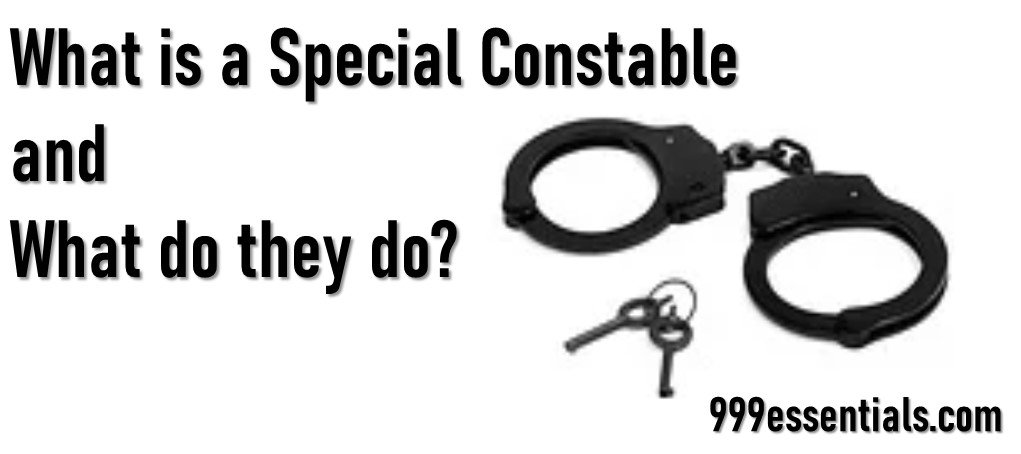
Why not join your local police force as a Special Constable? That way you will go through a similar format of training as a regular police officer and then you will be able to go out ‘on the street’ and experience what a police officer does.
This should give you a sense of whether the role of a police officer is for you. It will also give you the opportunity to build your confidence in a police environment. If you are interested, check out this article, to find out more about the Special Constabulary and what they do.
Why not trying to do a ‘ride along’? Most forces will offer a ‘ride along’ scheme, which will allow you to go out with a police officer to see what their role involves.
If this is not for you, but you still want to be part of the policing family, why not look for a police staff role? There are around 100 different roles undertaken by police staff, from those that work in the call centres taking the 999 calls, to intelligence analysts to people working in forensic recovery.
Final Thoughts
In summary, can introverts be police officers? Yes, definitely, introverts can definitely be police officers. There are pros and cons to bother introvert and extrovert tendencies, policing needs both introverts and extroverts, working together in order to have a good balance of skills.
If you are an introvert and considering becoming a police officer, why not test whether it is for you with some of our recommendations above?

